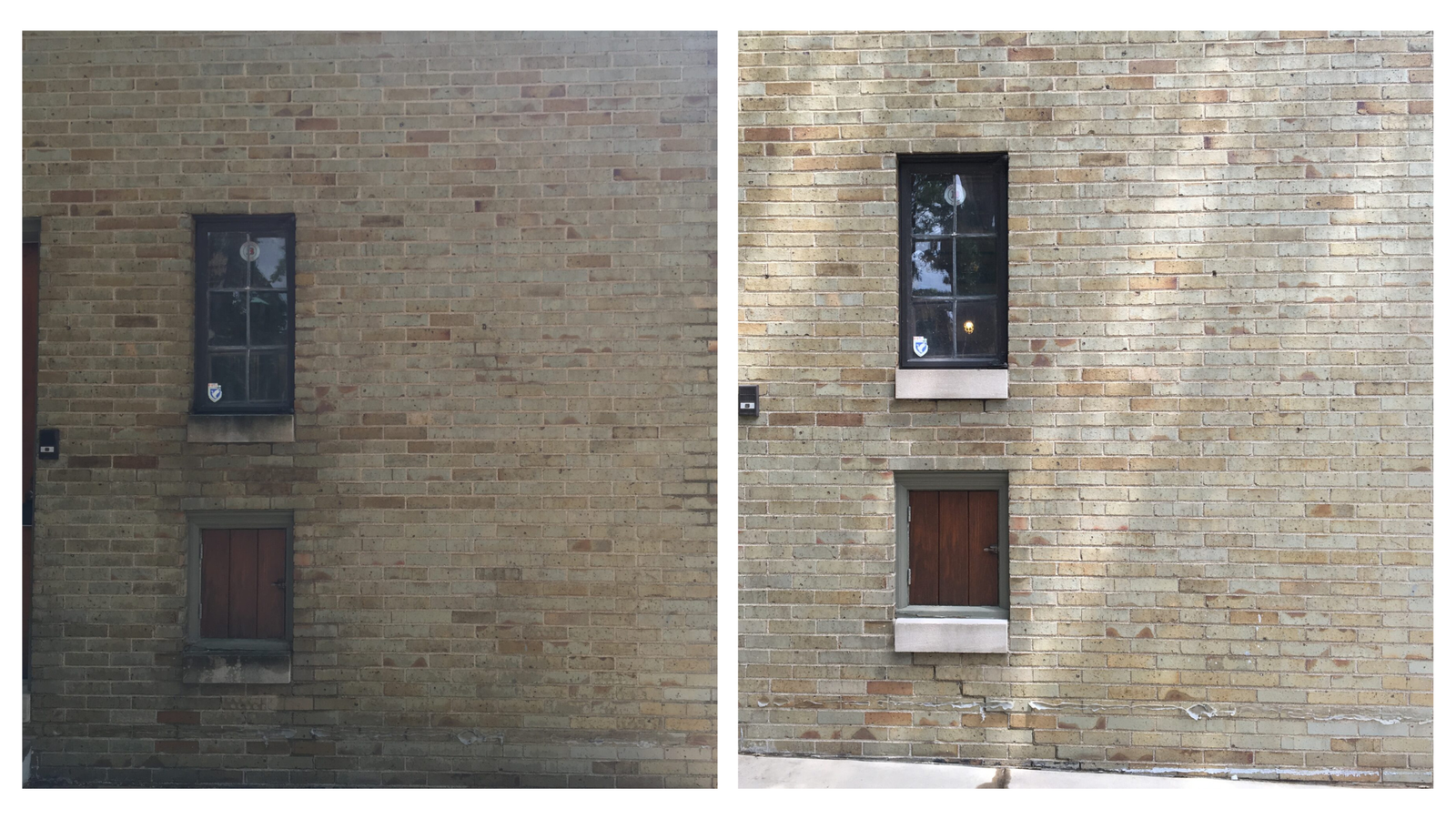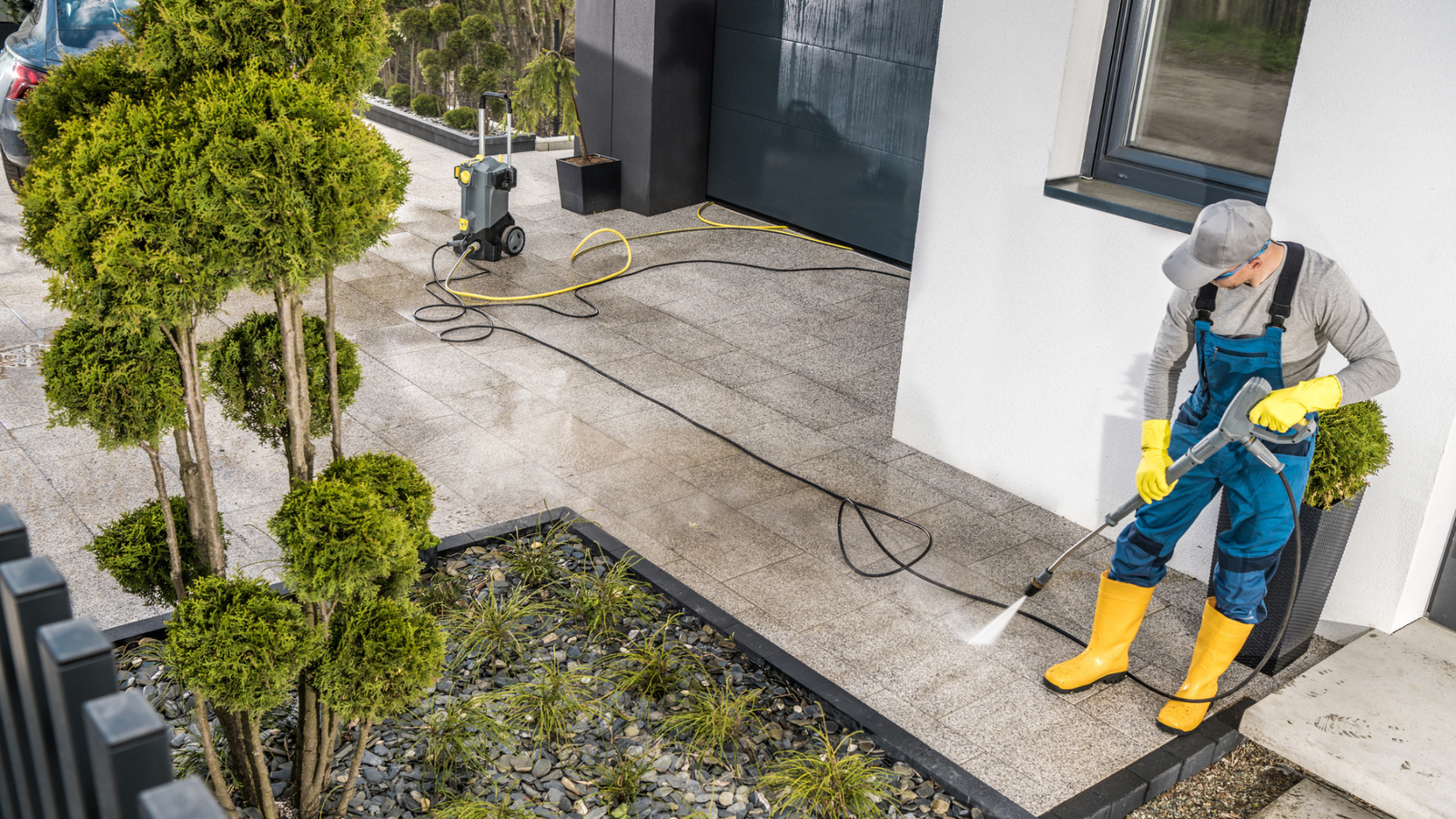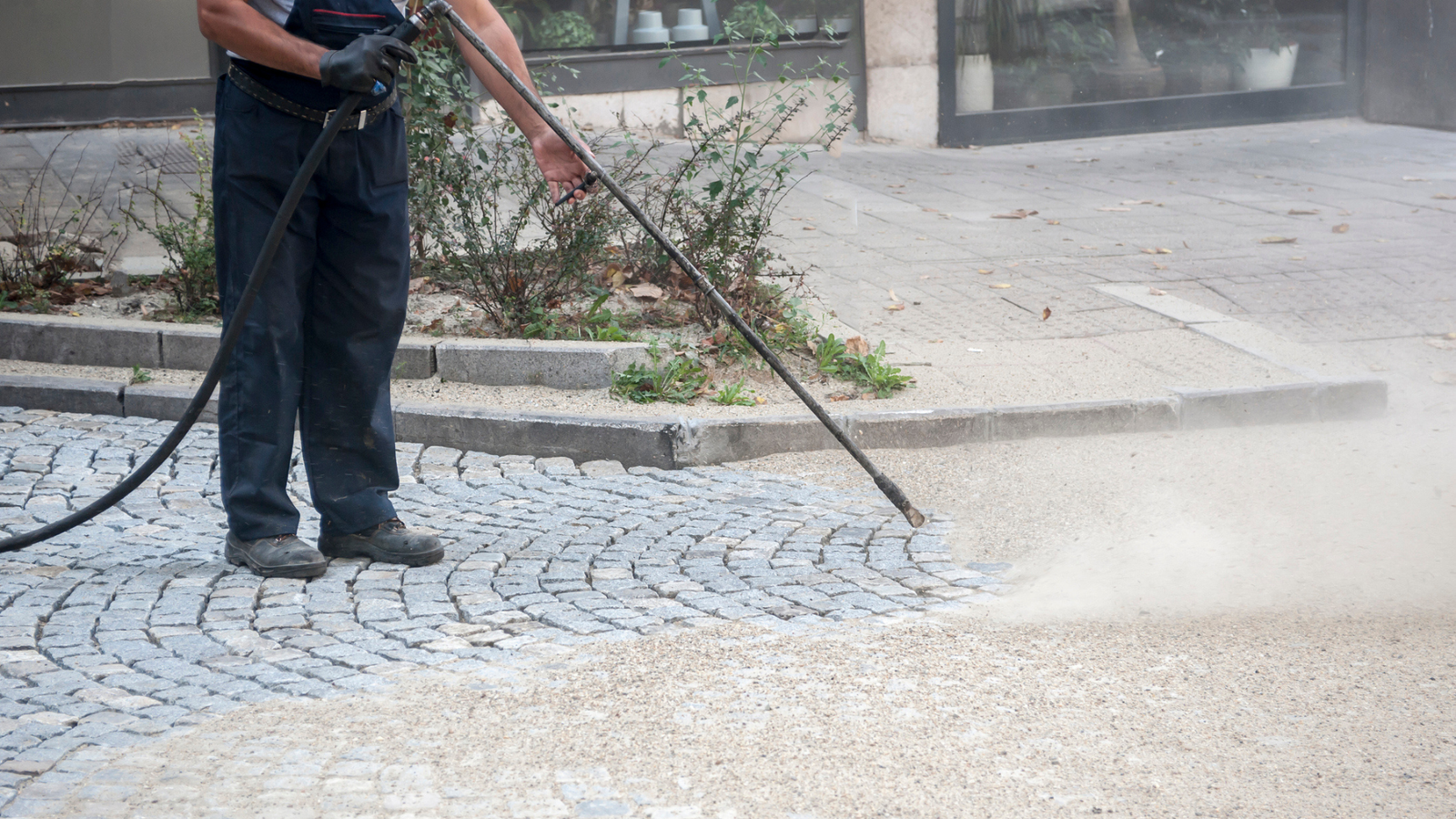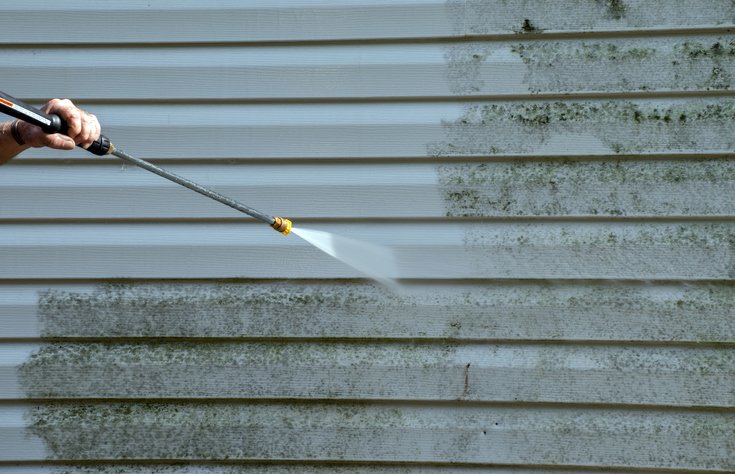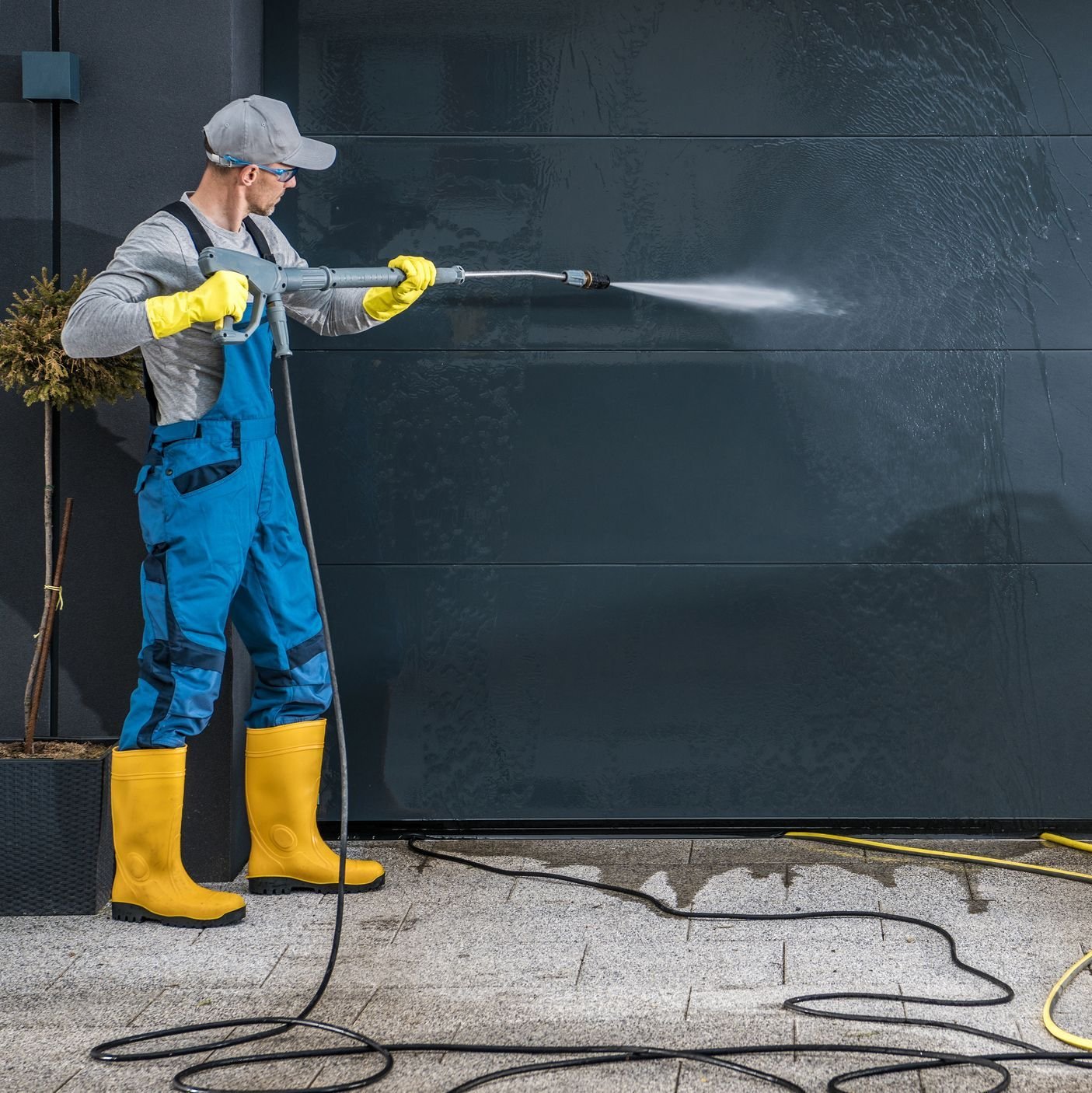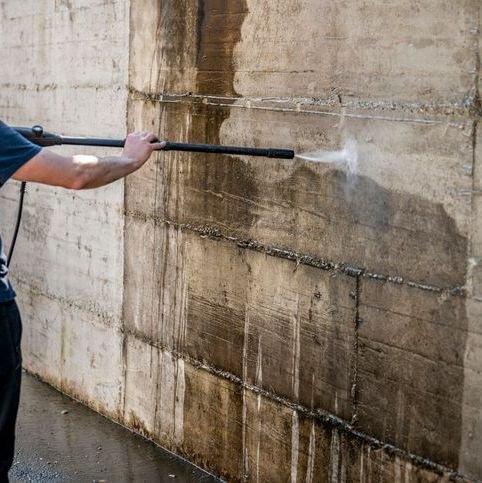
Over time, even the most beautifully designed buildings can lose their visual appeal due to airborne soils, pollution, and biological growth. Natural stone, brick, and concrete surfaces are all vulnerable—especially in shaded or damp areas where moss, algae, and mildew thrive. On limestone and other light-colored materials, this buildup can obscure the architectural detail and soften the elegance originally intended by the designer.
Beyond appearance, environmental factors can also cause lasting damage. Salt from ice melt compounds can be absorbed into the pores of natural stone at the foundation level, especially in winter months. This trapped moisture and salt can lead to spalling—where the surface layer of the stone breaks away—compromising both structural integrity and long-term durability. At Personal Touch, we take a gentle but effective approach to exterior cleaning, using safe chemistry and appropriate pressure to remove buildup without harming delicate masonry or historic materials.
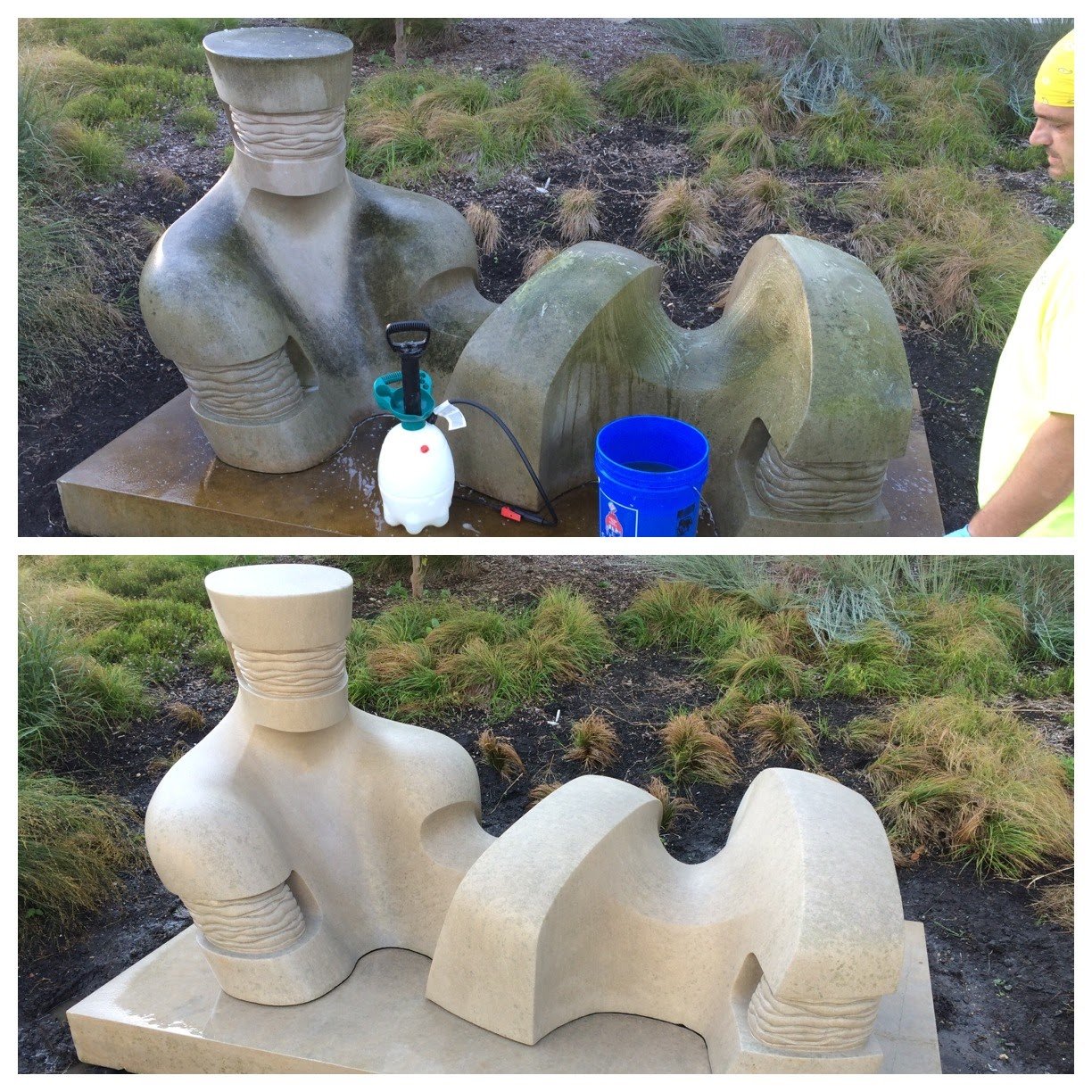
FAQs
How do you clean buildings with traffic and pedestrians nearby?
We work with municipalities and their contractors to secure the proper lane closures and signage, we bag meters as necessary for safety. We also use chemicals that will not damage surrounding materials.
What is the black staining on my historic building?
It can actually be one of two things. Coal was burned extensively to warm buildings at the turn of the last century and before. Coal burning created carbon build up on many historic properties. More likely, however, it is the build up of organic growth. Personal Touch uses gentle chemistry that leaves behind a retardant that discourages biological regrowth
Are you able to vary the pressure to ensure that older, softer brick or sandstone are cleaned gently?
Yes, we vary both pressure and the fan style of the nozzle end to make sure that pressure isn’t too concentrated on softer materials.
Are you able to apply water repellency products to help concrete and natural porous stone resist deep water and salt penetration?
Yes, for buildings subjected to rapid freeze/thaw cycles having too much water penetrate too deeply can create structural stresses when it freezes. Water repellent products help to protect highly porous materials like concrete driveways and the lower portions of natural stone buildings exposed to water and ice melting products.
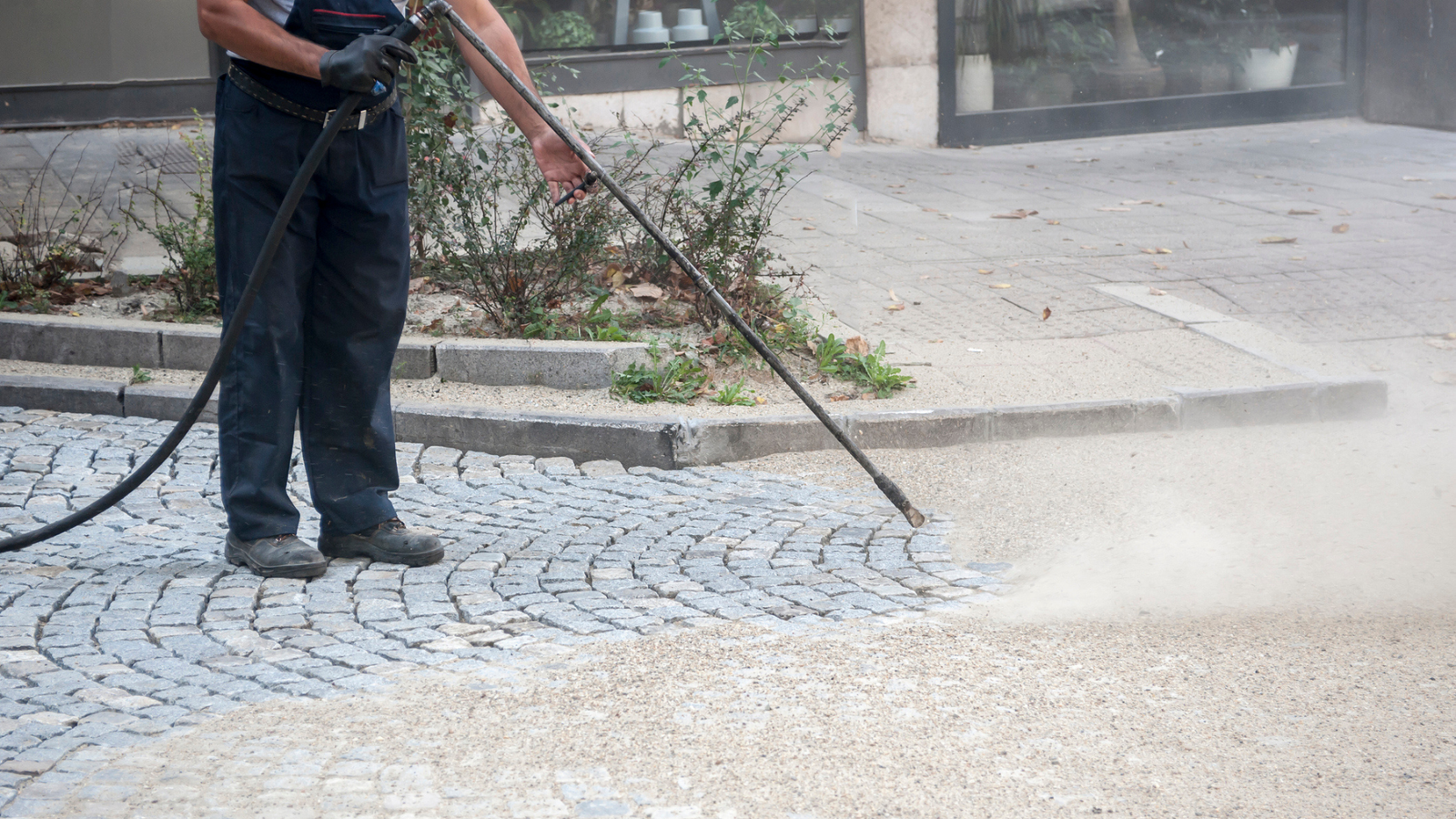
Choose Professionals Who Know How to Clean with Care
Exterior building cleaning requires more than just a power washer—it demands knowledge, experience, and a deep understanding of the materials being cleaned. Hiring a professional with the right training helps ensure your building is protected from damage and cleaned with the precision it deserves.
How to Ensure a Safe, Satisfying Exterior Cleaning Project
- Hire an experienced contractor with a proven track record in exterior cleaning across various surfaces and building types.
- Confirm they understand the chemistry-pressure balance—the relationship between cleaning solutions and safe water pressure for each material.
- Request all safety measures be outlined in advance, including site setup, equipment placement, and pedestrian precautions.
- Obtain Material Safety Data Sheets (MSDS) for all cleaning products used on your property.
- Assign an on-site safety monitor to ensure signs are observed and public areas remain safe during the cleaning process.

